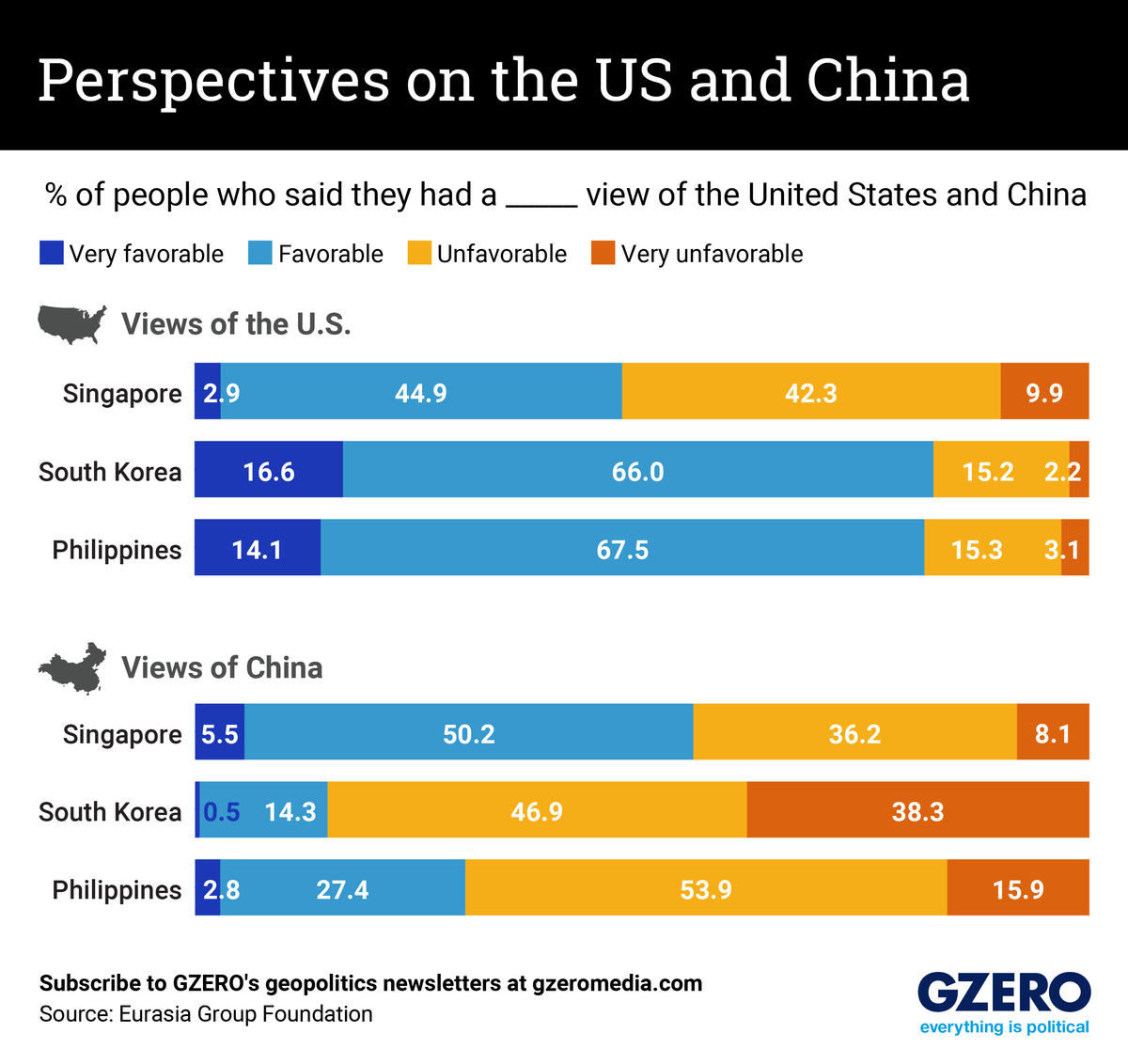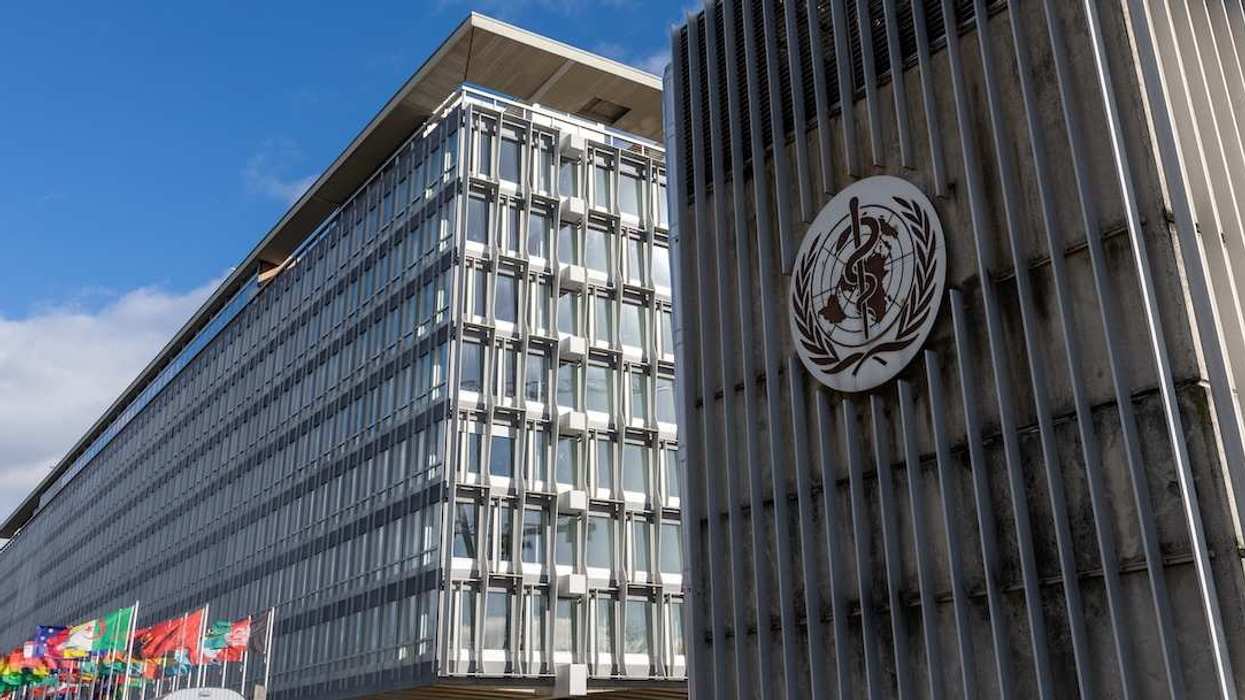The US and China are competing for influence around the globe, but tensions are particularly high in East Asia, where China is the dominant power and the US is working to stop the region’s drift toward Beijing. The Eurasia Group Foundation surveyed 1,500 people across Singapore, South Korea, and the Philippines – three countries caught in the middle of the US-China rivalry with significant historical, economic, and diplomatic ties to both superpowers – for their views.
“We found that the US is still held in high regard in the countries we surveyed, much more so than China, but that most think increasing tensions between the two countries will negatively impact their country's national security and domestic political environment” says Caroline Gray, a senior EGF researcher.
We took a look at the data to see how the US and China are faring in their competition for influence in East Asia.

















